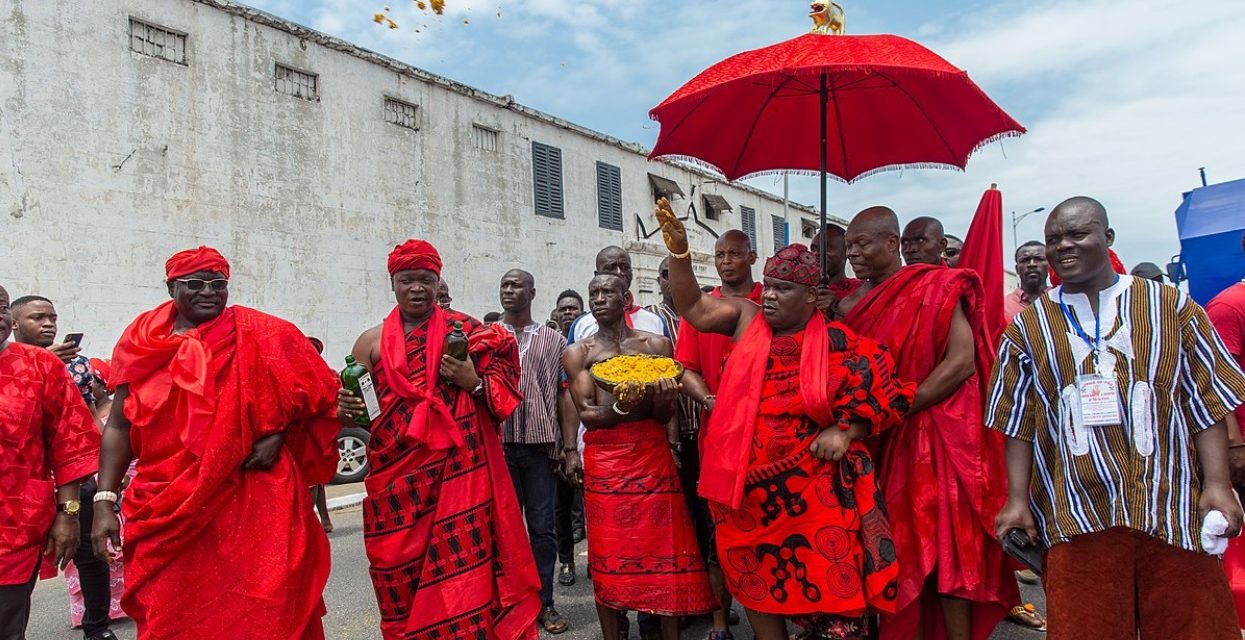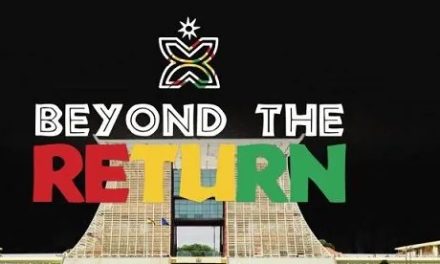Festivals of all shapes and sizes take place all year long in Ghana, a country renowned for its abundant cultural history. Celebrations like these give visitors an intimate glimpse into the culture, history, and religion of a country. Ghana’s festivals, with their drumming and colorful costumes, are a reflection of the country’s thriving culture and the strength of its communities.
Homowo Festival: A Time of Ga-Dangme Proudness and Fruitfulness
The Ga-Dangme people of Accra and the surrounding area celebrate the Homowo festival, which is one of the most well-known festivals in all of Ghana. Homowo, which literally translates to “hooting at hunger,” is a celebration that takes place after a particularly difficult period of harvesting. The festival kicks off with the ceremonial sowing of maize seeds and continues with a feast, dances, and drumming. A highlight of the celebration is a parade of chiefs and priests who pray for a good harvest and bless the people of the community as they make their way through the streets.
Aboakyre Festival of Effutu’s Deer-Hunting Rites
Every year, the Effutu congregate in the coastal town of Winneba for the Aboakyer festival, which literally means “hunting for game.” This one-of-a-kind event recreates a centuries-old ritual of deer hunting. Participants split into two teams and set out into the forest to capture live deer. The winning team is the first to bring a deer to the chief. The festival is a time of spirituality, competition, and community bonding; it is also marked by drumming, dancing, and the wearing of masks.
Odwira Festival: Akan Rite of Purification and Rebirth
The Odwira festival celebrates the end of the farming season and the renewal of spiritual strength for the Akan people, who live primarily in the Ashanti and Akuapem regions. Stools, ancestral shrines, and sacred sites are all cleaned in preparation for the festival. A time of ritual cleansing and offering gratitude to the gods for a bountiful harvest. Colorful processions, traditional music, and cultural displays pay homage to the past while looking forward to the future as part of the Odwira festival.
Hogbetsotso Festival: Anlo-Ewe Ancestral Honoring
In the Volta Region, the Anlo-Ewe hold the Hogbetsotso festival to remember when they fled their oppressive kings. A symbolic reenactment of their escape to safety is performed as part of the festival. Elders, chiefs, and warriors dress in traditional garb and process through the streets, performing rituals meant to commemorate the valor of their forefathers. Anlo-Ewe history is preserved through the Hogbetsotso festival’s traditional dances, drumming, and storytelling.
The African Diaspora Comes Together for Cultural Revival at Panafest
The Pan African Historical Theatre Festival (Panafest) is held in Ghana each year to foster unity and reconciliation among Africans both on the continent and in the diaspora through the medium of historical theater. Panafest is an event celebrated every two years in Cape Coast and Elmina that focuses on African history, culture, and identity through the mediums of performance, exhibition, and discussion. Participants come from all over the world to share in the event’s purpose of uniting and celebrating the common heritage of the African people.
Ghana’s festivals are more than just eye-catching displays of culture; they are authentic manifestations of the country’s values, traditions, and character. Different ethnic groups celebrate different aspects of life, each of which is highly valued by those groups. Festivals remain an integral part of Ghanaian culture, uniting people in joyful celebration of customs such as giving thanks for a bountiful harvest, paying respect to ancestors, and reconnecting Africans living in different parts of the world.





